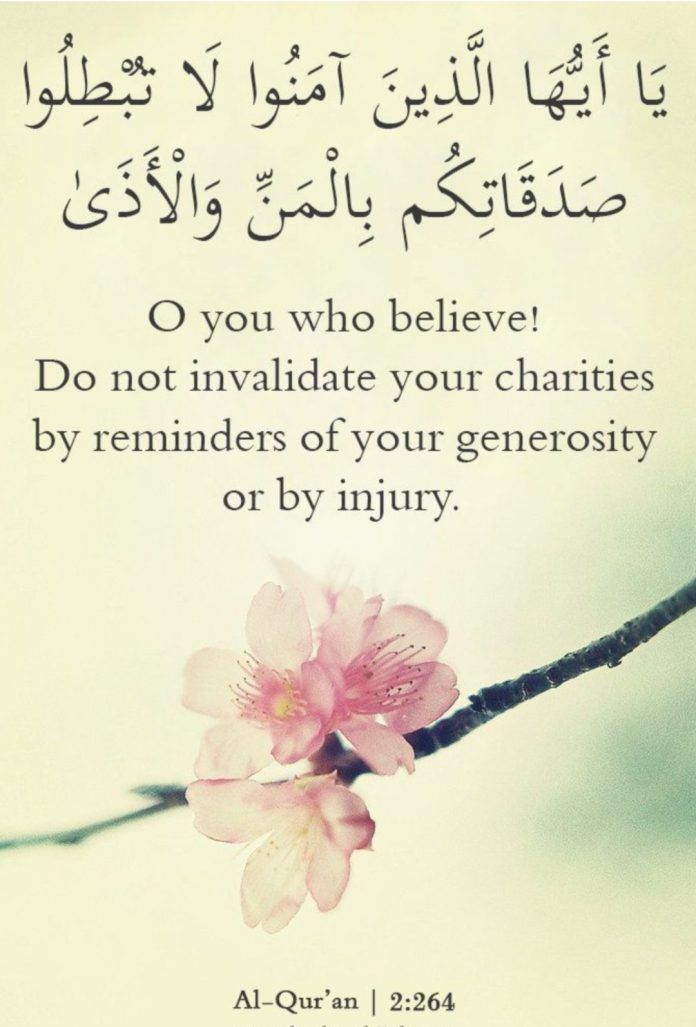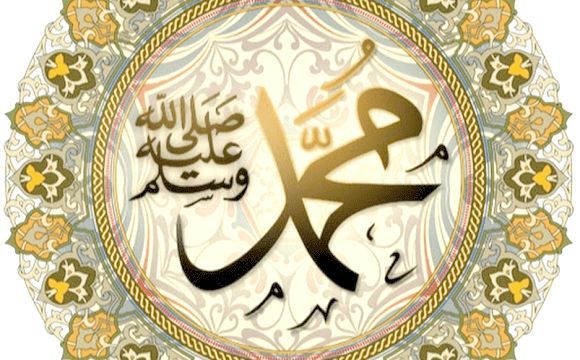By: Khursheed Alam Dawood Qasmi*
Wealth in the Qura’an:
The wealth is the great bounty of Allah. There are several verses in the glorious Qrua’an wherein the wealth has been mentioned in the positive meaning. Allah says: “Then We gave you your turn to overpower them, and increased your strength with wealth and sons, and made you greater in number.” (Isra: 06) While mentioning the story of Nooh (AS)’s activity of calling his nation towards Allah, the several bounties of Allah All-Merciful are noted. One among them is increasing wealth. The Qura’an speaks: “He will send (much-needed) rain to you in torrents. Increase your wealth, your sons and make orchards and rivers for you.” (Nooh: 11-12) At another place the Glorious Qura’an speaks: “When the Salaah has been completed then (you are free to) disperse in the land, seek from Allah’s bounty and remember Allah abundantly (engage in Dhikr wherever you may be) so that you may be successful.” (Jumuah: 10) Ibn Kathir writes under the commentary of this verse: “After Allah forbade Muslims from working after hearing the Adhan and ordered them to gather for the Friday prayer, He allowed them to spread throughout the earth and seek bounty after the prayer is finished.” (Tafsir Ibn Kathir)
How Did He Earn and Where Did He Spend?
If one is blessed with the wealth, he should not forget the rights of the poor and needy people. There are some people who assist the poor in the way that what his right hand does, his left hand is not aware of that. Such person will get great reward for it. As it is said in a Hadith, “A person who gives charity so secretly that his left hand does not know what his right hand has given (nobody knows how much he has given in charity, then such person will be shaded by Allah under His Shade on the Day of Resurrection when there will be no shade except His shade.)” (Sahih Al-Bukhari: 1423) There are some rich people who don’t want to spend his wealth on the poor. They think that whatever they possess, that is the earning of his hard-work, then why should they give it to the poor. Such people must know that they will have to face the question of his wealth on the Day of Resurrection, “How did he earn it and where did he spend it?” (Tirmidhi: 2417) There are also third type of rich people in our society. They spend their wealth on the poor people, but their intentions are not good. After giving something, they take the recipients as their servants and slaves. They want the recipients should remain at their command every time as the obedient servants. Sometimes, they cause hurt, insult, humiliation and boast favours on the recipients.
Avoid Causing Hurt:
Whatever the rich people give to the poor, it means that they thank Allah, because whatever they possess that is from Allah. Allah has decided the rights of the poor people in their wealth. So they are fulfilling their responsibilities. Moreover, the givers will be rewarded for that in the hereafter. Some people want to boast of favours following the charity to the poor. This action is very condemnable and totally rejected. The givers will be questioned for it on the Doomsday. If we have wealth, it is our responsibility to spend it in the way of Allah avoiding to cause any hurt and boasting favours. It is unfortunate that the people have forgotten the Qura’anic instructions and the prophetic lessons not only about the wealth and its proper use; but in the most of the aspects of the life. Let’s see some verses of the Holy Qrua’an about the one who boasts favour and causes hurt someone after giving him charity.
Allah the Exalted says: “A graceful word and forgiving is better than charity followed by causing hurt. Allah is All-Independent, Forbearing. (Al-Baqarah: 263) Mufti Muhammad Shafi Usmani (1897-1976) writes under the commentary of this verse: “…One who spends does so for his own good. That being so, an intelligent human being should keep this in mind while spending in the way of Allah, that he is not favouring anybody, and that he is spending for his own good. And should one sense ingratitude on the part of people treated well, he should subject himself to the divine attribute of ‘forbearing’, show obedience and forgive and forget”. (Ma’ariful Qura’an: 1/652-653)
Nullifying the Act of Charity:
The next verse of the same chapter says: “O you who believe, do not nullify your acts of charity by boasting about (doing people a) favour and by causing (them) hurt, like the one who spends his wealth to show off before people and does not believe in Allah and in the Last Day. So, his example is like a rock on which there is dust, then a heavy rain came over it and left it barren. They have no ability to gain anything out of what they have done, and Allah does not give guidance to the people who disbelieve.” (Al-Baqarah: 264)
What has been conveyed in the previous verse, this one also gives the same message with more emphasis on the same topic. Mufti Muhammad Shafi Usmani writes: “This makes it clear that any form of favour-flashing or needy-bashing, after an act of charity renders such charity null and void. There is no reward for it.
In this verse, one more condition governing the acceptance of Sadaqah has been added by saying that one who spends for public exposure, for name and fame, and does not believe in Allah Almighty and the Day of Resurrection, can be likened to be acting in a situation where he sows a grain on a clean rock which has collected a layer of soil, then comes the rain and washes the whole thing clean. Such people will never reap what they have sown and Allah Almighty will not let the disbelievers see the way. From this we know the condition that governs the acceptance of Sadaqah and Khayrat — spend only to seek the good pleasure of Allah Almighty and with the intention of getting Thawab (reward) in the Akhirah (Hereafter). Never do it with the intention of having public exposure, name and fame. Spending with the intention of earning name and fame is wasting what you spend. And should a true Muslim, who does believe in the Hereafter, expend something simply for name, fame, and under hypocritical motivation, he too, would not get any Thawab (reward) for it. Moreover, there is a hint here in the use of the additional sentence “لایؤمن باللہ” (And does not believe in Allah); perhaps, it aims to suggest that hypocrisy and name-seeking is not just the sort of thing a person who believes in Allah Almighty and the Day of Resurrection would ever do since hypocrisy is a sign of something being wrong with his faith.” (Ma’ariful Qura’an: 1/653)
Spend to Seek Allah’s Pleasure:
The aforesaid verses make it clear that if a person gives something in charity with the intention to achieve the fame, boasting favours, causing hurt or for showing off; such charity doesn’t have any value in the sight of Allah, but the giver will be sinful and punished for it. Contrary to it, the one who gives his wealth to the beggar and weak people with the intention of seeking Allah’s pleasure; such person will be rewarded by Allah. His rewards will be noted in the record of his deeds as multiplied by seven times, but sometimes even multiplied by seven hundred times. Allah the Exalted says: “The example of those who spend in the way of Allah is just like a grain that produced seven ears, each ear having a hundred grains, and Allah multiplies (the reward) for whom He wills. Allah is All-Embracing, All-Knowing.” (Al-Baqarah: 261)
This verse gives the glad tidings to those who spend their wealth amongst the weak people, orphans and the widows in the way of Allah just for seeking His pleasure. The glad tiding is that his reward will be multiplied by seven times. It has been made clear in the Holy Qura’an by citing a sensational example, e.g. a person sows a grain of wheat in the fertile land. From that grain one such plant grows which has seven ears and each ear comprises of 100 grains. It brief, if a person spends one rupee, he will be rewarded 700 rupees for that. But it should be noted that the intention of the giver must be to seek Allah’s pleasure. So, the next verse confirms it clearly. The Glorious Qura’an speaks: “Those who spend their wealth in the way of Allah, then do not make their spending followed by boasting about favour, or with causing hurt, – they have their reward with their Lord and there is no fear for them nor shall they grieve.” (Al-Baqarah: 262)
If a person spends something in the way of Allah, he must understand that Allah will keep it for him in the hereafter; but He will reward more than what one has spent. Allah the Almighty says: “And whatever thing you spend, He replaces it, and He is the best of the sustainers.” (Saba: 39) At another place the Exalted Allah says: “Whatever good you spend is for your own selves, and you shall not spend but to seek the pleasure of Allah, and whatever good thing you spend shall be repaid to you in full, and you shall not be wronged.” (Al-Baqarah: 272)
Significance of Charity in Ahaadeeth:
The Ahaadeeth of the Prophet Muhammad (SAWS) are full with the significance of charity. Some narrations are mentioned here. According to a Hadith, the things which remain for the human being after the death is the charity and good deeds; otherwise what one gathers in the world will not be present in the hereafter for him. Once upon a time, a sheep was slaughter at the home of the Messenger of Allah (SAWS). The whole meats were distributed, except the shoulder which was kept for the home. Then very good conversation took place on the sheep’s meat between the Prophet (SAWS) and mother Aisha (RA). Aisha (RA) narrates that they had slaughtered a sheep. So the Prophet (SAWS) said: “What remains of it?” She said: “Nothing remains of it except its shoulder.” He (SAWS) said: “All of it remains except its shoulder.” (Sunan Tirmidhi: 2470) According to the Islamic teaching, the part of the food which is consumed by a person is finished and he will be not rewarded for it. But the part which is given as charity to a needy or a poor person remains for the giver and he will be rewarded for it in the Hereafter. That is why the Messenger of Allah (SAWS) described the part of mutton given in charity as remaining part.
As said in one Hadith, if a person spends his wealth in the way of Allah generously, the angel supplicates for growth in his wealth. If a person doesn’t spend his wealth in the way of Allah due to his misery, the angel calls Allah for the destruction of his wealth. The Hadith goes like this: The Prophet (SAWS) said: “Every day two angels come down (from the heaven) and one of them says, ‘O Allah! Compensate every person who spends in Your Cause,’ and the other (angel) says, ‘O Allah! Destroy every miser.'” (Sahih Al-Bukhari: 1442)
If a Muslim fulfills the needs of his Muslim brother, the Almighty Allah fulfills his requirements. The Prophet Muhammad (SAWS) says: “A Muslim is a brother of another Muslim, so he should not oppress him, nor should he hand him over to an oppressor. Whoever fulfilled the needs of his brother, Allah will fulfill his needs.” (Sahih Bukhari: 2442)
One who spends his wealth and money in the cause of Allah, the Almighty Allah grants blessing in his wealth. If someone doesn’t spend in the cause of Allah, then He also doesn’t bless in his wealth. Hazrat Asma, daughter of Abu Bakr (RA) narrates that she came to the Prophet (SAWS) (for some problem) and he (SAWS) said: “Do not shut your money bag; otherwise Allah too will withhold His Blessings from you. Spend (in Allah’s Cause) as much as you can afford.” (Sahih Al-Bukhari: 1434)
Allah’s Practice:
It is Allah’s practice that He keeps changing the conditions of the people of the universe. It is possible that the one who is rich today, he can be poor tomorrow and the vice-versa. Imam Abu Yusuf (RA) has truly said: “The wealth comes in the morning and goes in the evening.” It is Allah the All-Powerful Who makes someone rich whenever He wishes. He also has power over making a person poor whenever He wishes. After making someone rich, He fixes the rights of His poor slaves in the wealth of the rich one. In this way, Allah the Almighty examines His both types of slaves either the rich is thanking Him and looking after the poor and the poor is having patience on not having wealth. Because it is Islamic teaching that if someone is blessed with something, he should thank Allah and when some is deprived of something, he should have patience.
Conclusion:
Today, a good number of people are suffering due to the lack of wealth and resources; while Allah has enriched some people. Some of the rich people do understand the Islamic teaching and look after the poor people. But there are also some rich people of such type that firstly they don’t want to spend their wealth on the poor. Secondly, if they spend, it goes in vain and they don’t get any reward due to their wrong intention. Therefore, those who are blessed with the riches, they should spend in the way of Allah, according to the Islamic guidelines. Their intention should not be showing off, causing hurt and boasting favours after assisting the poor. This write-up is concluded with a Hadith. Allah’s Messenger (SAWS) said: “The example of an alms-giver and a miser is like the example of two persons wearing two iron cloaks from their breasts to their collar bones; and when the alms-giver gives in charity, the cloak becomes capacious till it covers his whole body to such an extent that it hides his fingertips and covers his footprints (obliterates his tracks). And when the miser wants to spend, it (the iron cloak) sticks and (its) every ring gets stuck to its place, he tries to widen it, but it doesn’t become wide.” (Sahih Al-Bukhari: 1443) ***
*Moon Rays Trust School, Zambia, Africa
Email: qasmikhursheed@yahoo.co.in

















